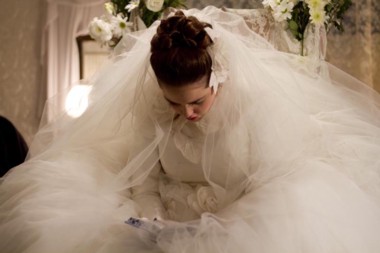Years ago, I traveled to Israel to visit a friend for a few weeks one summer. We rented a car and tooled up and down the countryside, visiting a remarkably diverse landscape. For a relatively small country, Israel contains a stunning diversity: from snowy mountains to arid deserts, flat and fertile lands to thick forest growth (much of which—around 250 million trees—has been planted as part of a massive afforestation campaign). Alongside it all, the temperate Mediterranean beckons. It seemed as if an entire world lived within the country’s borders.
But if its geography was impressive, it seemed secondary to the diversity of the land’s cultures. The varied backgrounds of the country’s people—who often live in isolation but mix together in the daily flow of life and commerce, all packed together in that small sliver of land—made for inherent drama. It was especially apparent in Jerusalem’s Old City, which has long been divided into four quarters, each representing a different religious group. And as modern secular lifestyles have crept into the country, the friction between old and new has sometimes sent up sparks.
It’s that kind of tension that has been brought to bear on many Israeli films over the years, and this week, Fill The Void carries on the tradition. Screening at Amherst Cinema, the film, directed by Rama Burschtein, tells the story of ultra-Orthodox eighteen-year-old Shira (Hada Yaron), bride-to-be to a young man in an arranged marriage. She’s surprised to find that she’s actually excited about it all (after snooping on the bridegroom at a local supermarket), but then tragedy strikes: her older sister Esther dies during childbirth. The wedding is postponed.
And then, a second tragedy: Esther’s husband Yochay is offered a new marriage match in Belgium. Faced with the thought that the family will now lose not only a daughter but also their only grandchild, matriarch Rivka proposes a new plan to keep the family together: Yochay will marry Shira. With that, the young woman is suddenly faced with a monumental decision—follow her heart or keep her extended family together, something central to her way of life.
But rather than play on stereotypes, Burschtein (who was born in New York but attended film school in Jerusalem) lets the situation unfold gradually; where one might expect to see a family pushing the marriage while their daughter rebels, here there is more nuance. While Shira’s mother sees good in the match, her rabbi father is less certain. Her single aunt—never married, for reasons the film reveals with a jolt—is against the idea, pushing the girl toward independence. In the end, it is Shira’s choice, but a choice that will affect them all.
Also this week: Amherst continues its Martin Scorsese film festival with the classic Raging Bull. It’s the story of boxer Ray LaMotta, but to call it a boxing movie is like calling Citizen Kane a movie about a sled. Instead, it’s a masterful take on a particularly American rise, fall, and redemption.
LaMotta was a man who could take a beating both in and out of the ring, and his hard-headed ways led him to a title bout against Sugar Ray Robinson (they would fight six bouts in all; the one that LaMotta won would be the first defeat of Robinson’s career). But whatever success he found was not enough to calm his inner demons—indeed, the better he did, the more tumultuous his private life seemed to become. He burned bridges with those closest to him, and by the time his boxing career was coming to an end, LaMotta—the man who couldn’t be put down—had become his own, best, opponent.•
Jack Brown can be reached at cinemadope@gmail.com.



